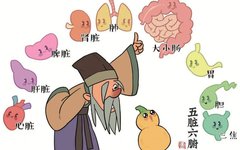The “Zang” organs refer to the internal organs collectively. According to their physiological functions, the “Huangdi Neijing” classifies the internal organs into three categories: the five Zang organs, six Fu organs, and the extraordinary organs. As stated in the “Lüshi Chunqiu”: “There are three hundred sixty joints in a person, nine orifices, five Zang, and six Fu.”
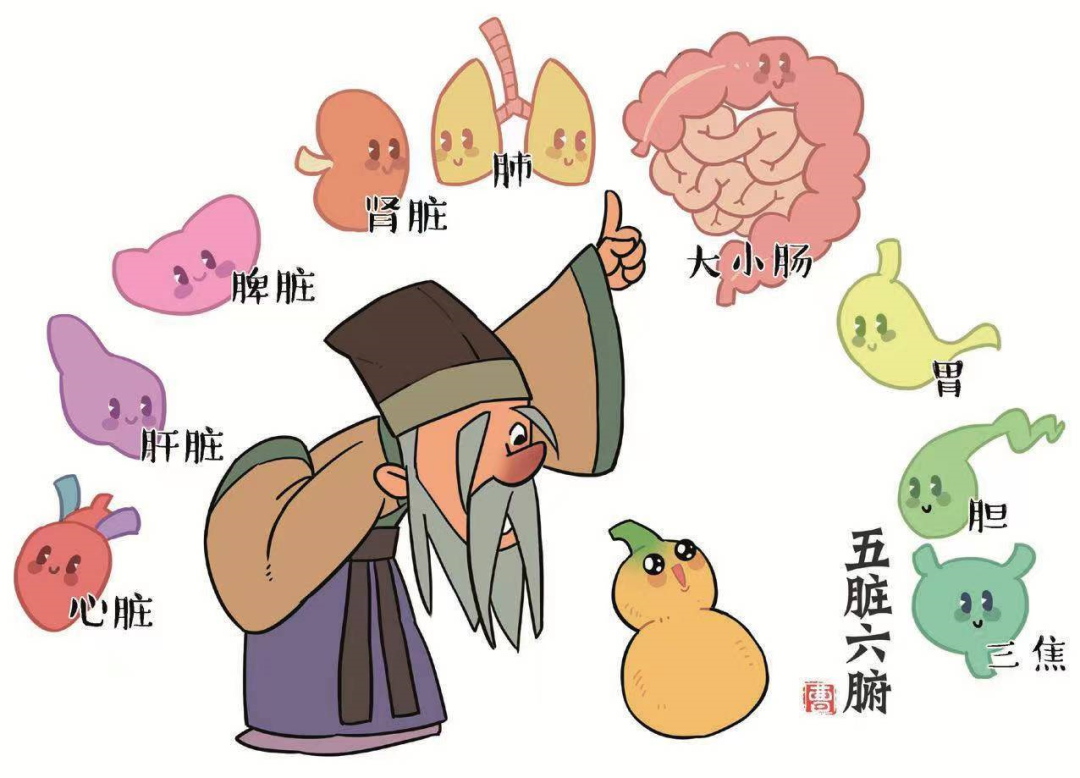
Centered around the five Zang organs, each Zang and Fu organ corresponds to Yin and Yang, interconnected through the meridians: The five Zang organs are responsible for storing the essential substances necessary for life activities: Heart (Xin), Liver (Gan), Spleen (Pi), Lung (Fei), Kidney (Shen), while the six Fu organs manage the intake, transmission, transformation, and excretion of food substances: Gallbladder (Dan), Stomach (Wei), Large Intestine (Da Chang), Small Intestine (Xiao Chang), San Jiao (Triple Burner), Bladder (Pang Guang), and the extraordinary organs include: Brain (Nao), Marrow (Sui), Bones (Gu), Vessels (Mai), Gallbladder (Dan), and Uterus (Nu Zi Bao). For example, the Heart is paired with the Small Intestine, the Lung with the Large Intestine, the Spleen with the Stomach, the Liver with the Gallbladder, and the Kidney with the Bladder.In TCM, the “Zang” organs are relatively full in form, capable of transforming and storing vital energy; the “Fu” organs can receive, store, and transform food and fluids; the extraordinary organs do not directly contact food and fluids but serve a similar function to the Zang organs in storing vital energy.As stated in the “Suwen: On the Distinction of the Five Zang”: “The so-called five Zang are those that store vital energy without leaking, hence they are full but cannot be solid. The six Fu are those that transform substances without storing, hence they are solid but cannot be full.” This summarizes the functions of the five Zang and six Fu organs.
For example, the Heart is paired with the Small Intestine, the Lung with the Large Intestine, the Spleen with the Stomach, the Liver with the Gallbladder, and the Kidney with the Bladder.In TCM, the “Zang” organs are relatively full in form, capable of transforming and storing vital energy; the “Fu” organs can receive, store, and transform food and fluids; the extraordinary organs do not directly contact food and fluids but serve a similar function to the Zang organs in storing vital energy.As stated in the “Suwen: On the Distinction of the Five Zang”: “The so-called five Zang are those that store vital energy without leaking, hence they are full but cannot be solid. The six Fu are those that transform substances without storing, hence they are solid but cannot be full.” This summarizes the functions of the five Zang and six Fu organs.
Functions of the Zang and Fu Organs
The five Zang and six Fu organs are the most important components of the body. Although each organ has its own functions, they work together as a coordinated whole. Among them, the Heart holds a particularly important position.The organs in the human body are like a court drama, with the Emperor and ministers in the Golden Hall, each performing their duties in their respective positions, coordinating with each other to maintain the balance of Yin and Yang in the body. It is the continuous work of these organs that allows us to eat, sleep, and work normally.
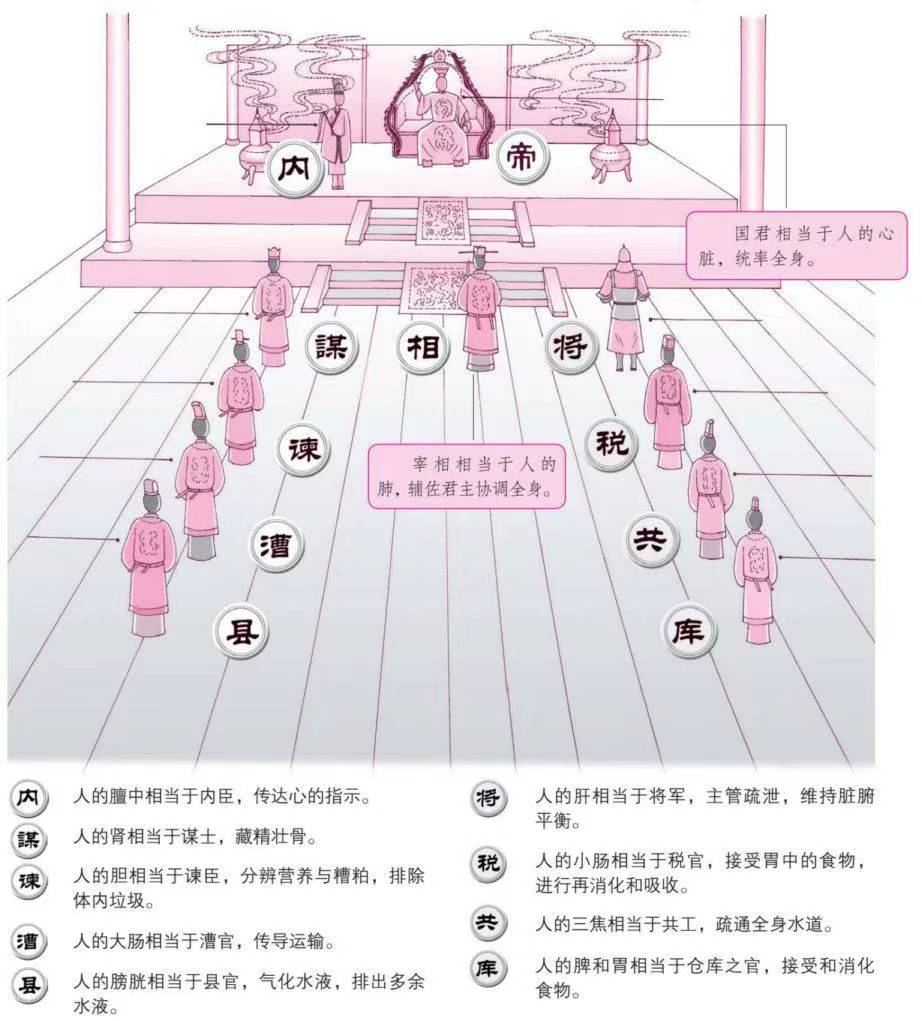
The Heart is likened to the monarch of the body, governing mental awareness and thought activities, and coordinating the functional activities of all other organs. The Lung, located above the Heart, acts like the Prime Minister, managing the body’s Qi and assisting the Heart in regulating overall functional activities. The Liver is compared to a general, responsible for strategy. The Gallbladder, characterized by decisiveness and integrity, can be likened to an official of “righteousness” with the ability to make decisions. The Pericardium (Xin Bao) serves as the inner minister of the monarch, conveying the Heart’s joyful emotions.
Click the image to enter
Relationship Between the Spleen and Stomach
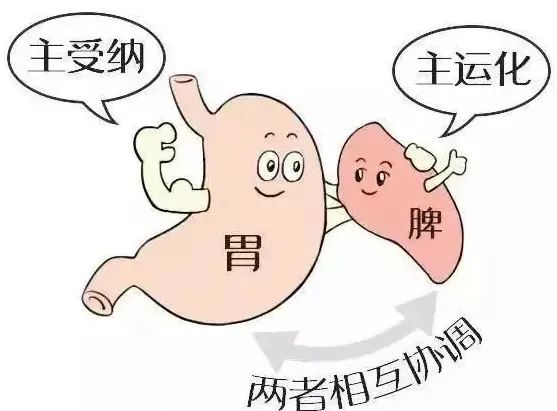
The Spleen and Stomach are likened to officials managing the grain warehouse, responsible for receiving and digesting food, transforming it into nutrients for the body. The Large Intestine acts as a transmission channel, managing the transformation of food and the excretion of waste. The Small Intestine is responsible for receiving and digesting food from the Stomach, separating fluids from waste. The Kidney stores essence, which nourishes the bones and maintains the body’s vitality, thus it is the “official of strength,” governing intelligence and skills. The San Jiao acts as the official of drainage, managing the smooth flow of body fluids. The Bladder is the reservoir for body fluids, serving as the “capital”; only through the Bladder’s vaporization can excess fluids be expelled as urine.
The Twelve Organs Are Most Important
Although the functions of the twelve organs are distinct, they must not lose coordination. Of course, the Heart, as the monarch, is especially important; only when the Heart’s functional activities are sound can the functions of the other organs operate normally. By maintaining the body in this way, one can achieve longevity and avoid serious diseases throughout life. The same principle applies to governing a country; thus, the nation will prosper and develop. Conversely, if the Heart’s function is abnormal, the functions of the twelve organs will become disordered, the pathways of Qi and blood will be obstructed, and the organs will lose coordination, leading to severe harm to the body.
Click the image to view
What is Qi and Blood?
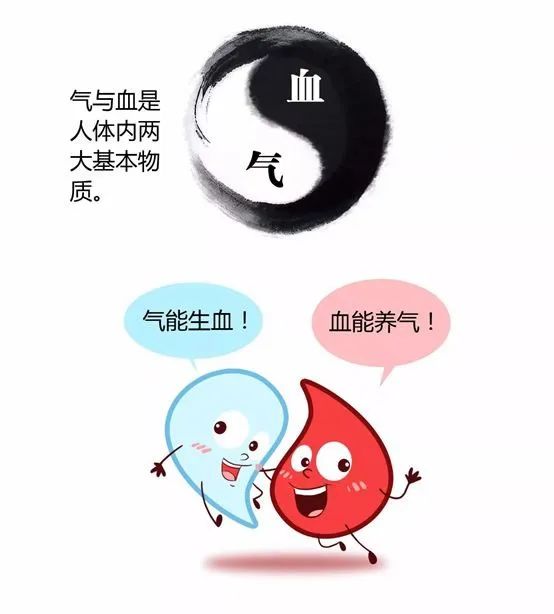
Using this method for health preservation will surely lead to continuous disasters; if used to govern a country, the nation’s ancestral temples and state will be in danger, which is truly worth caution.First, let’s talk about the five Zang organs:
Five Zang Organs
The Heart (Xin), Lung (Fei), Spleen (Pi), Liver (Gan), and Kidney (Shen) are referred to as the five Zang organs, and with the Pericardium (Xin Bao), they are collectively called the six Zang organs. However, it is customary to include the Pericardium under the Heart, thus the term five Zang encompasses the Pericardium. The five Zang organs share the physiological functions of transformation and storage of vital energy, while each has its own specific duties and has a special connection with the body’s orifices, forming a unique system centered around the five Zang organs.
Click the image to view
What is Vital Energy?
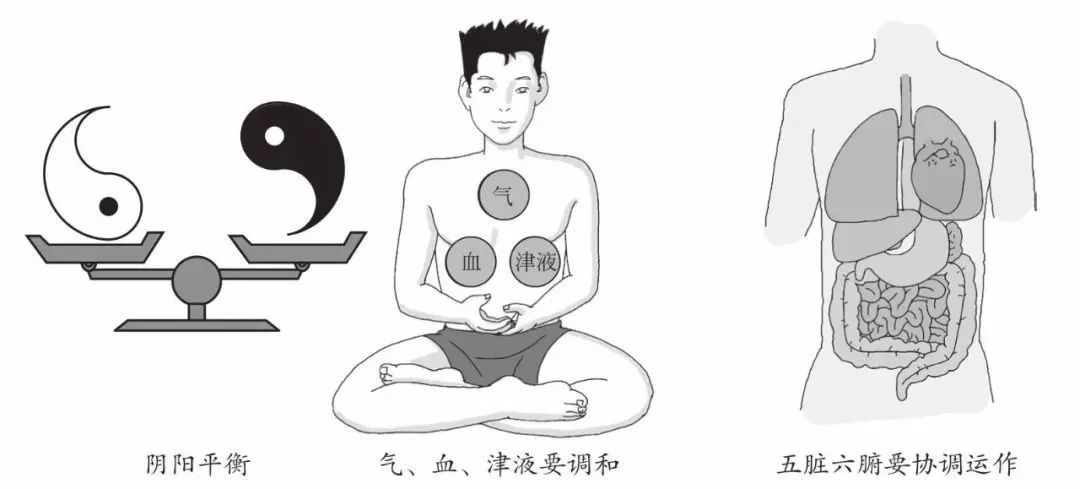
The common physiological functions of the five Zang organs are the transformation and storage of vital energy, as well as housing the spirit and governing will. Among them, the Heart’s physiological function plays a dominant role. Although the physiological functions of the five Zang organs are distinct, they share commonalities, primarily reflected in the following two aspects:
-
All five Zang organs are related to mental activities.
As stated in the “Ling Shu: On the Zang”:
“The five Zang are where the spirit, blood, Qi, and soul are stored.”
This means that the Heart, Lung, Spleen, Liver, and Kidney are closely related to mental activities. The “spirit, blood, Qi, and soul” represent different mental activities, each belonging to a specific Zang organ. For example, “the Heart houses the spirit,” “the Lung houses the soul,” “the Spleen houses thought,” “the Liver houses the ethereal soul,” and “the Kidney houses will.” The five Zang organs are the center for maintaining the stability of physiological functions within the body and balancing the internal and external environment. The five Zang organs operate through the actions of Heart Qi, Liver Qi, Lung Qi, Stomach Qi, and Spleen Qi; therefore, if Qi is insufficient, it will lead to a decline in organ function.
The Heart—The Monarch of the Spirit
Located in the thoracic cavity, above the diaphragm, protected by the Pericardium, with orifices communicating internally.
Click the image to view
What is the Role of the Heart in the Human Body?
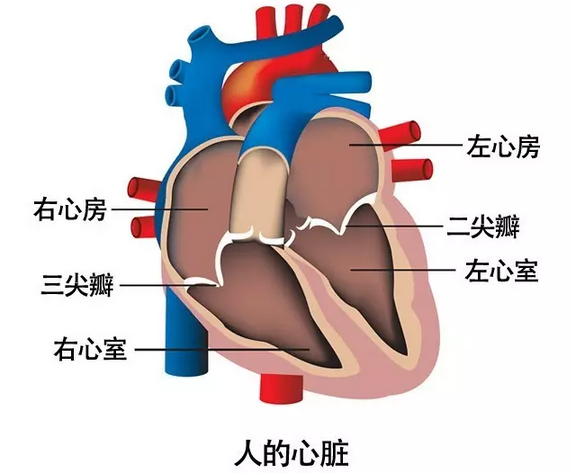 As stated, “the Heart is the monarch of the body,” in this court drama, the Heart plays the role of the emperor above all.To say that the Heart is the emperor is not without basis; during the Qing Dynasty, eight emperors resided in the “Yangxin Hall”—why not in the “Yanggan Hall” or “Yangshen Hall”? This highlights the importance of the Heart. “The Heart governs blood vessels” and “the Heart houses the spirit” indicate that the “Heart emperor” can control the flow of blood and is also responsible for regulating everyone’s spirit. The Heart plays a leading role among the five Zang organs, just as a national leader must possess a certain charisma to be a spiritual leader for ministers and the people.
As stated, “the Heart is the monarch of the body,” in this court drama, the Heart plays the role of the emperor above all.To say that the Heart is the emperor is not without basis; during the Qing Dynasty, eight emperors resided in the “Yangxin Hall”—why not in the “Yanggan Hall” or “Yangshen Hall”? This highlights the importance of the Heart. “The Heart governs blood vessels” and “the Heart houses the spirit” indicate that the “Heart emperor” can control the flow of blood and is also responsible for regulating everyone’s spirit. The Heart plays a leading role among the five Zang organs, just as a national leader must possess a certain charisma to be a spiritual leader for ministers and the people.
Click the image to view
How to Nourish Heart Qi?
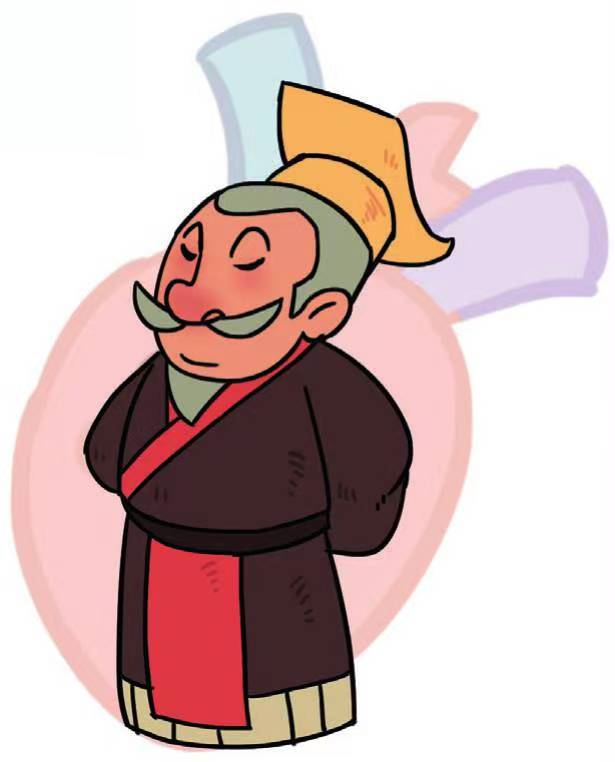
The primary physiological functions of the Heart are: to govern blood vessels and spirit;The primary physiological characteristics of the Heart are: the Heart is a Yang organ and governs clarity;The systemic connections of the Heart are: it connects with the vessels, its manifestation is on the face, its orifice is the tongue, its emotion is joy, its fluid is sweat, its season is summer, and its direction is south.The Heart is paired with the Small Intestine in terms of internal-external relationships.
Click the image to view
What is the Role of the Small Intestine in the Human Body?
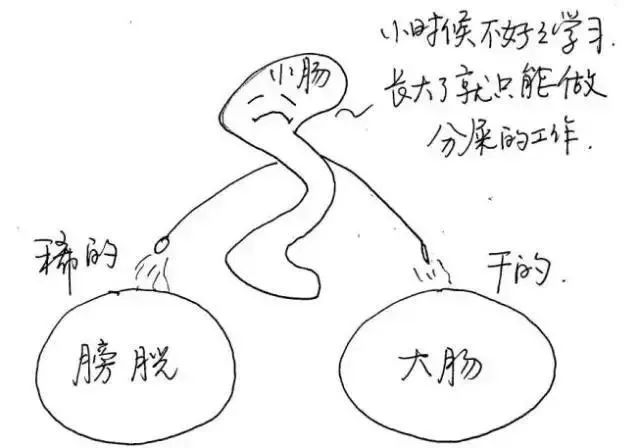
-
The Heart governs blood vessels.
This refers to the Heart’s physiological function of promoting blood circulation within the vessels. When a person’s Heart Qi is strong, and blood flows smoothly, the physiological functions of the entire body are normal, reflected in a rosy and radiant complexion, a regular and strong pulse. When Heart function declines, the complexion may appear pale; if there is blood stasis in the Heart, the complexion may appear bluish-purple, the tongue dark purple, and symptoms such as palpitations, insomnia, and forgetfulness may occur.
Click the image to view
What is Blood Vessels?
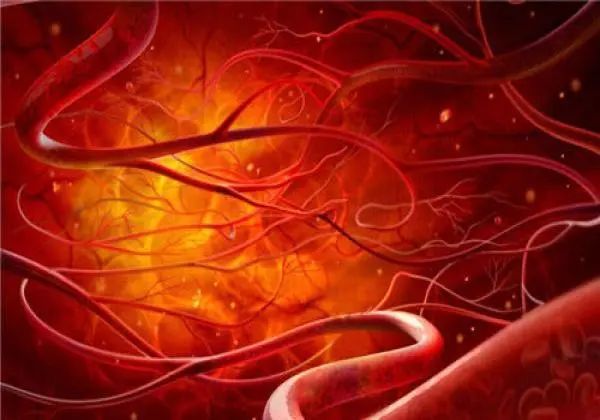
-
The Heart governs spirit.
Ancient people believed that mental activities are governed by the Heart, while the brain governs thought. The normal functioning of the brain is closely related to the Heart’s governance of blood vessels; only when Heart Qi is abundant and blood is sufficient can the brain receive nourishment and function normally, leading to a responsive and alert mental state. Conversely, various pathological manifestations of brain malnourishment may occur, such as insomnia, vivid dreams, or sluggish responses and forgetfulness.
-
Physiological Characteristics of the Heart
The Heart is a Yang organ, governing Yang Qi; it belongs to the Fire element and corresponds to the summer’s heat.To maintain blood circulation, invigorate the spirit, and regulate fluid metabolism, the Heart must maintain strong Yang Qi. If the Heart’s Yang Qi declines, it can lead to blood stagnation, weakened mental faculties, and abnormal fluid metabolism.
The Heart is the master of the five Zang and six Fu; when sorrow arises, the Heart stirs, and when the Heart stirs, all five Zang and six Fu are affected. (Neijing)
This indicates that the Heart is the ruler of the five Zang and six Fu; thus, emotions such as sadness, grief, and worry can disturb the Heart, leading to unrest in the five Zang and six Fu.
The Lung—The Official of Expelling the Old and Taking in the New
The Lung is located in the thoracic cavity, with one on each side, connecting upward to the trachea and pharynx, and communicating with the nose. Due to its position as the highest among the Zang and Fu organs, it is also referred to as the “canopy.”
Click the image to view
What is the Role of the Lung in the Human Body?
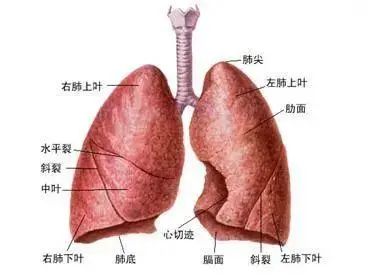
The “Huangdi Neijing” states: “The Lung is the minister of the body, governing the regulation of Qi.” The term “minister” implies assistance, while “governing” refers to the role of a prime minister, thus the Lung plays the role of a prime minister who assists the monarch. The Lung is divided into the left and right lungs, akin to the prime ministers assisting the emperor on both sides.“The Lung is the canopy,” “the Lung is the delicate organ,” and “the Lung Qi regulates and descends” are the physiological characteristics of the Lung.Why is the Lung referred to as the “canopy” and “delicate organ”? The Lung is positioned at the top of the Zang and Fu organs, like an umbrella covering the other organs, hence it is called the “canopy.” It also protects the other ministers. Because the Lung connects to the outside world through the respiratory tract, it is the most susceptible to external pathogens, appearing delicate, thus referred to as the “delicate organ.” Therefore, we must take good care of the Lung, especially during weather changes, to prevent external pathogens from invading and causing illness.
Click the image to view
How to Nourish Lung Qi?
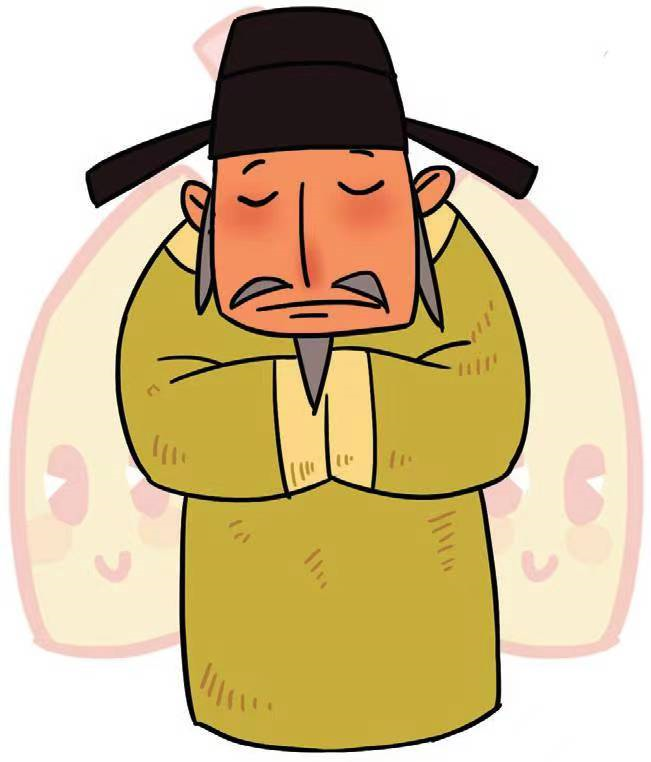
The “Prime Minister of the Lung” is responsible for many affairs: directing the exchange of gases between the body and the environment, ensuring smooth breathing; managing the transportation of water, such as the distribution, movement, and excretion of body fluids through the Lung Qi’s regulation and descent; and cooperating with the Heart to jointly govern and regulate the physiological functions of Qi, blood, fluids, and organs, just as a prime minister assists the emperor to ensure the people’s well-being.The physiological functions of the Lung include: governing Qi, managing respiration, regulating water pathways, connecting to all vessels, and governing regulation.The physiological characteristics of the Lung are: the Lung is a delicate organ, favoring moisture and disliking dryness.The systemic connections of the Lung are: it connects with the skin, its manifestation is in the hair, its orifice is the nose, its fluid is mucus, its spirit is the soul, its emotion is sadness, its season is autumn, and its direction is west.The Lung is paired with the Large Intestine in terms of internal-external relationships.
Click the image to view
What is the Role of the Large Intestine in the Human Body?
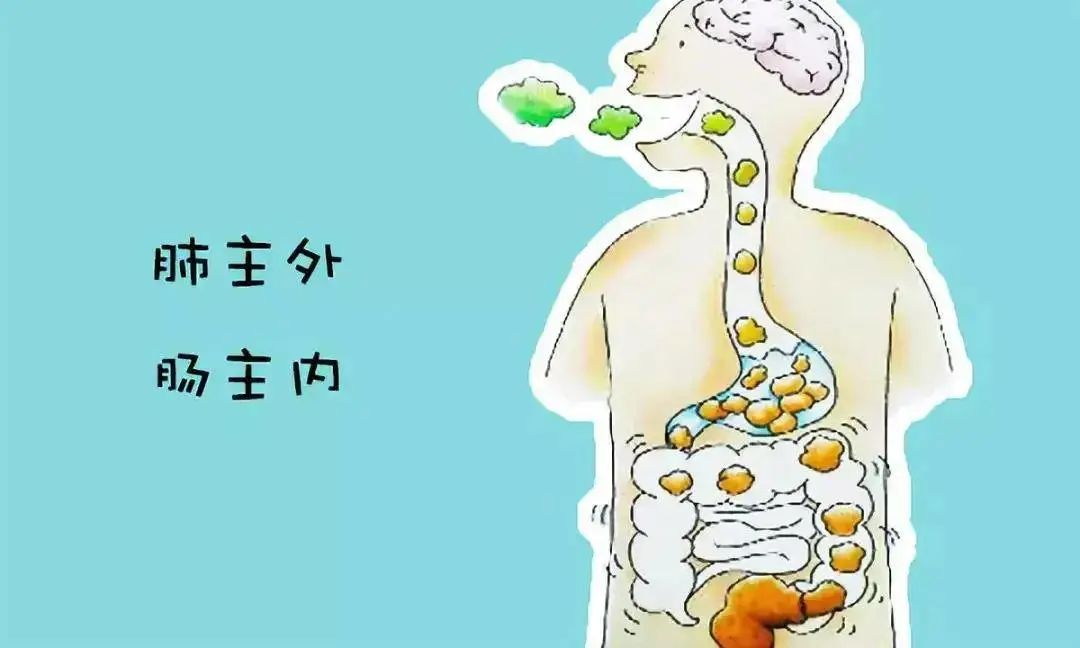
-
The Lung governs Qi.
Qi is the most fundamental substance that constitutes and maintains human life activities, and the Lung primarily oversees and manages these life activities.
Click the image to view
What is Qi?
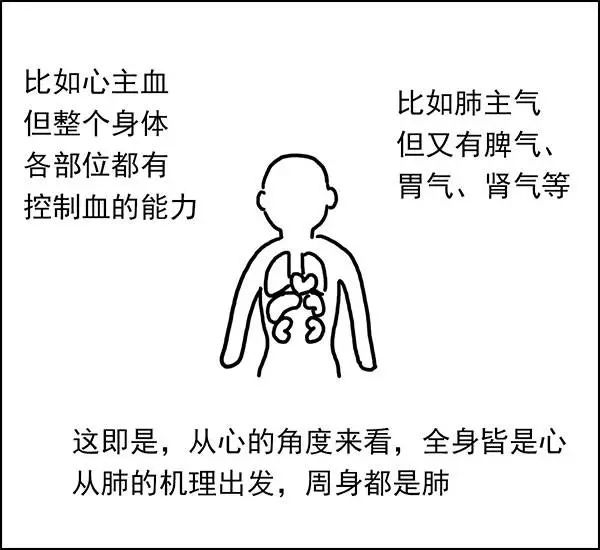
The Lung is the respiratory organ, responsible for the exchange of gases within the body, expelling turbid air and inhaling fresh air, continuously expelling the old and taking in the new, thus ensuring smooth metabolism. Additionally, the Lung regulates the Qi of various organs and opens the pathways for body fluids.
-
The Lung governs respiration.
The Lung controls exhalation and inhalation, ensuring regularity; thus, Qi can circulate throughout the body, assisting the Heart’s circulatory system and promoting overall metabolism, meaning the Lung governs the Qi of the entire body.
-
The Lung governs regulation.
The Lung’s regulation refers to its ability to disperse Qi and fluids upward, downward, inward, and outward. When the Lung Qi’s regulation and descent are coordinated, the movement of Qi is normal, allowing for smooth breathing and normal fluid metabolism. If regulation and descent are disordered, symptoms such as chest tightness, sweating, chills, and fever may occur.
-
Physiological Characteristics of the Lung
The Lung prefers fresh, moist air and is associated with the autumn climate; it cannot tolerate extreme cold or heat and cannot accommodate foreign substances. Moreover, the Lung connects with the outside world through the mouth and nose, making it susceptible to external pathogens, leading to symptoms such as cough, fever, and nasal congestion. Therefore, the Lung is also referred to as the “delicate organ.”
The Heart dislikes heat, the Lung dislikes cold, the Liver dislikes wind, the Spleen dislikes dampness, and the Kidney dislikes dryness; these are known as the five dislikes. (Neijing)
This indicates that the Heart fears heat, the Lung fears cold, the Liver fears wind, the Spleen fears dampness, and the Kidney fears dryness; these are the five dislikes of the Zang organs.
The Liver—The General of Regulating and Storing Blood
The Liver is located above the abdomen, beneath the diaphragm, and has two lobes.
Click the image to view
What is the Role of the Liver in the Human Body?
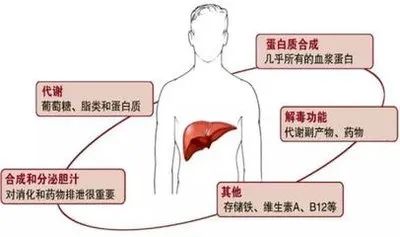
As stated, “the Liver is the general of the body, responsible for strategizing.” The Liver plays the role of a general who is responsible for planning and strategizing. Although the “Liver general” is good at strategy, he has a flaw: he is strong-willed and impatient, so we cannot confront him head-on. At the same time, he is also easily harmed and may become unhappy due to certain events, leading to “Liver Qi stagnation.” The Liver general also has a special hobby: he likes to “store blood”; this “storing blood” is not for himself but for the benefit of all, ready to supply the stored blood when needed, maintaining the balance of Qi and blood in the body.
Click the image to view
How to Nourish Liver Qi?
 The primary physiological functions of the Liver are: to regulate and store blood.The physiological characteristics of the Liver are: the Liver is a rigid organ, and Liver Qi primarily rises.The systemic connections of the Liver are: it connects with the tendons, its manifestation is in the nails, its orifice is the eyes, its fluid is tears, its spirit is the ethereal soul, its emotion is anger, its season is spring, and its direction is east.The Liver is paired with the Gallbladder in terms of internal-external relationships.
The primary physiological functions of the Liver are: to regulate and store blood.The physiological characteristics of the Liver are: the Liver is a rigid organ, and Liver Qi primarily rises.The systemic connections of the Liver are: it connects with the tendons, its manifestation is in the nails, its orifice is the eyes, its fluid is tears, its spirit is the ethereal soul, its emotion is anger, its season is spring, and its direction is east.The Liver is paired with the Gallbladder in terms of internal-external relationships.
Click the image to view
What is the Role of the Gallbladder in the Human Body?
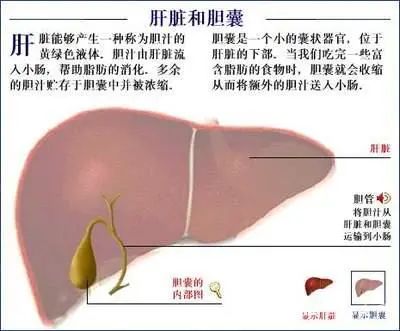
-
The Liver governs regulation and blood storage.
The Liver governs regulation and blood storage, possessing the comprehensive functions of regulating the smooth flow of Qi throughout the body and storing and regulating blood, primarily reflected in the following aspects:
-
The Liver regulates the rise and fall of Qi within the body, maintaining the normal physiological activities of all organs;
-
It promotes the metabolism of fluids and the normal circulation of blood;
-
It facilitates the normal digestive functions of the Spleen and Stomach;
-
It regulates a person’s spirit and emotions, maintaining a cheerful mood;
-
It promotes the expulsion of semen in men and menstrual blood in women;
-
The Liver stores a rich supply of blood, which can meet the needs of various organs.
For example:
Thus, when a person sleeps, blood returns to the Liver. The Liver receives blood and enables vision; the feet receive blood and enable walking; the palms receive blood and enable grasping; the fingers receive blood and enable dexterity. (Neijing)
It is worth noting that during sleep, blood is stored in the Liver. When the eyes receive nourishment from blood, they can see; when the feet receive blood, they can walk; when the palms receive blood, they can grasp; when the fingers receive blood, they can be skillfully used.
-
The Liver governs the tendons.
The tendons of the entire body rely on the nourishment of the Liver’s Yin blood, and the color and condition of the nails can reflect the abundance or deficiency of Liver blood.
-
The Liver opens to the eyes.
If the Liver’s Yin blood is insufficient, symptoms such as dry eyes, blurred vision, or night blindness may occur.
Click the image to view
What Causes Dry Eye Syndrome?

The Spleen—The Official of Transformation and Blood Regulation
The Spleen is located within the abdominal cavity, beneath the diaphragm, shaped like a sickle, and is oval or triangular, divided into front and back ends, attached to the back side of the Stomach on the left upper side, cohabiting the middle jiao.
Click the image to view
What is the Role of the Spleen in the Human Body?
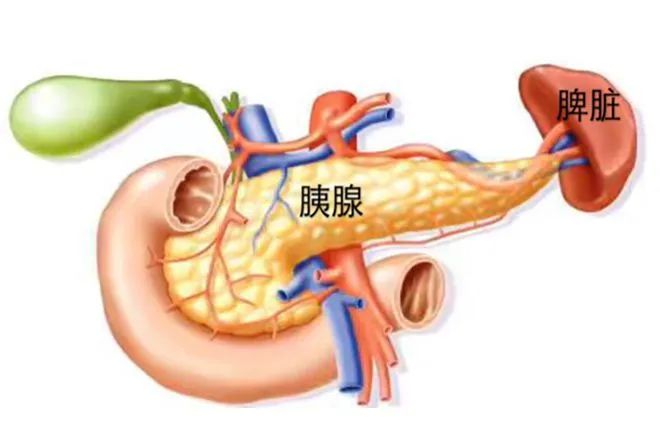
The Spleen acts as a filter, cleaning and storing blood.The Spleen, through the interconnections of the meridians, forms a relationship with the Stomach, maintaining the biochemical balance of Qi, blood, and fluids in the body, thus sustaining life activities, and is therefore referred to as the “foundation of postnatal life.”As stated, “The Spleen and Stomach are the officials of the granary, from which the five flavors emerge.” The Spleen and Stomach are like conjoined twins; they cannot be separated, and even in the court, they must work side by side in the same department. Now, let’s first understand the Spleen among the five Zang organs. The Spleen works in the “royal kitchen”; simply put, the Spleen is essential for the grand project of eating. The Spleen is primarily responsible for assisting in the transportation and digestion of food, while also transforming the essence of food into nutrients for the various organs to use. The Spleen is also a very clean “person”; it prefers a dry environment and dislikes dampness. If the working environment is too humid, it will affect the Spleen’s enthusiasm for work.
Click the image to view
How to Nourish Spleen Qi?

The physiological functions of the Spleen are: the Spleen governs transformation, the Spleen Qi primarily rises, and it regulates blood.The physiological characteristics of the Spleen are: it is the Taiyin damp earth, favoring dryness and disliking dampness.The systemic connections of the Spleen are: it connects with the flesh, its manifestation is in the lips, its orifice is the mouth, its fluid is saliva, its spirit is thought, its emotion is contemplation, its season is late summer, and its direction is center.The Spleen is paired with the Stomach in terms of internal-external relationships.
Click the image to view
What is the Role of the Stomach in the Human Body?
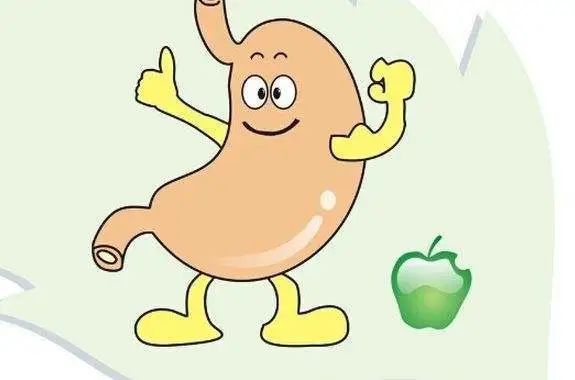
-
Governing Transformation
The Spleen digests and absorbs the food and fluids ingested by the body, transporting the refined substances throughout the body. When the Spleen’s transformation function is strong, the limbs, bones, and muscles can receive nourishment and maintain normal physiological functions.Transforming Food Essence:This refers to the Spleen’s role in digesting and absorbing food substances.Transforming Water and Dampness:This refers to the Spleen’s role in absorbing and transporting fluids, regulating and maintaining the balance of fluid metabolism in the body in conjunction with other organs.
Humans receive Qi from grains; grains enter the Stomach, then are transmitted to the Lung, and all five Zang and six Fu receive Qi. (Neijing)
This indicates that after food and fluids enter the body, they are transformed by the Spleen and Stomach, producing refined essences, which are then transmitted to the Lung. Through the Lung’s dispersing function, these refined essences are distributed throughout the body, nourishing all five Zang and six Fu.
Click the image to view
Relationship Between the Spleen and Stomach
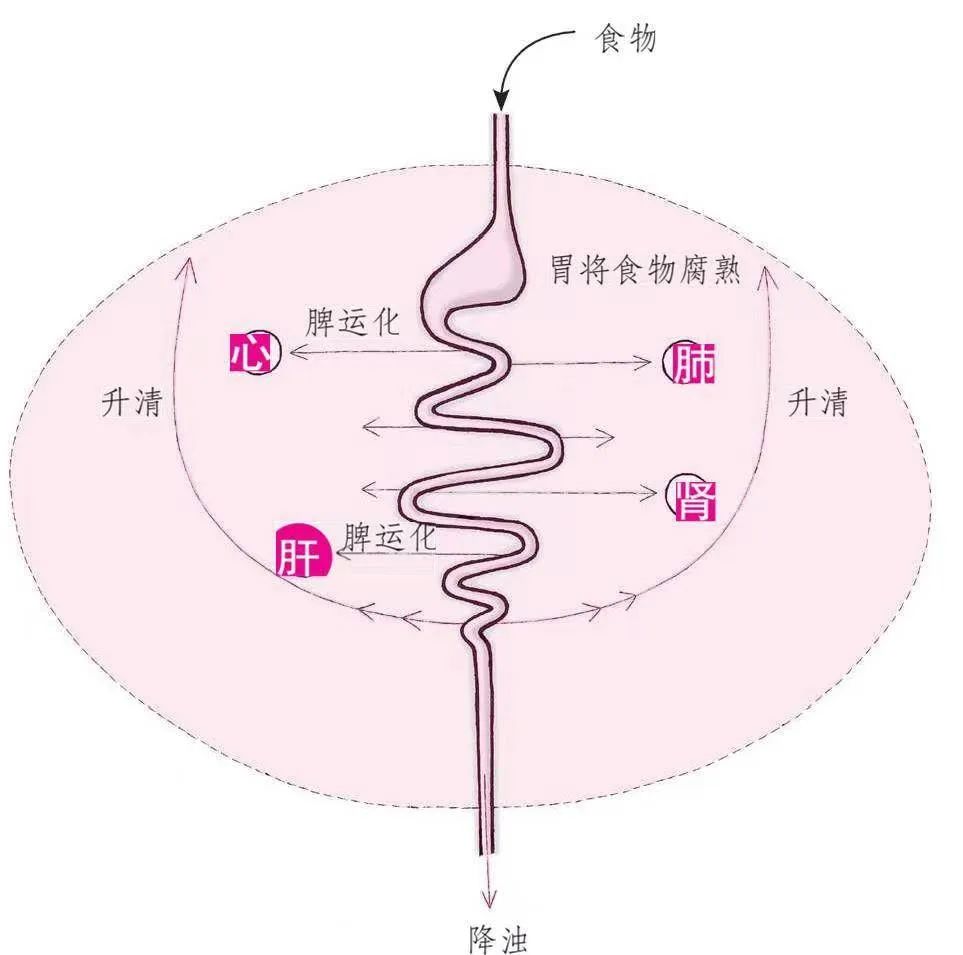
The food that enters the Stomach is digested, and then the Spleen transports the essence of the Stomach’s food to the five Zang and six Fu, which is the source of nourishment for the five Zang and six Fu.
-
Governing Ascension
The Spleen can help the refined substances in food ascend to the Heart and Lungs and to the head, nourishing the entire body through the actions of the Heart and Lungs.
-
Governing Blood Regulation
The Spleen can control blood from overflowing outside the vessels, maintaining normal circulation.The physiological characteristics of the Spleen are that it prefers dryness and dislikes humidity, corresponding to the damp climate of late summer. The Spleen is Yin earth, and due to its role in transforming fluids, it is easily harmed by Spleen Yang, leading to Yang deficiency.At the same time, the Spleen is the center for the rise and fall of water, fire, Yin, Yang, Qi, and blood; thus, if the Qi mechanism is obstructed, it can easily lead to dysfunction in the Spleen and Stomach.
The Kidney—The Official of Storing Vital Energy
The human kidneys consist of two, weighing about one pound.
Click the image to view
What is the Role of the Kidney in the Human Body?
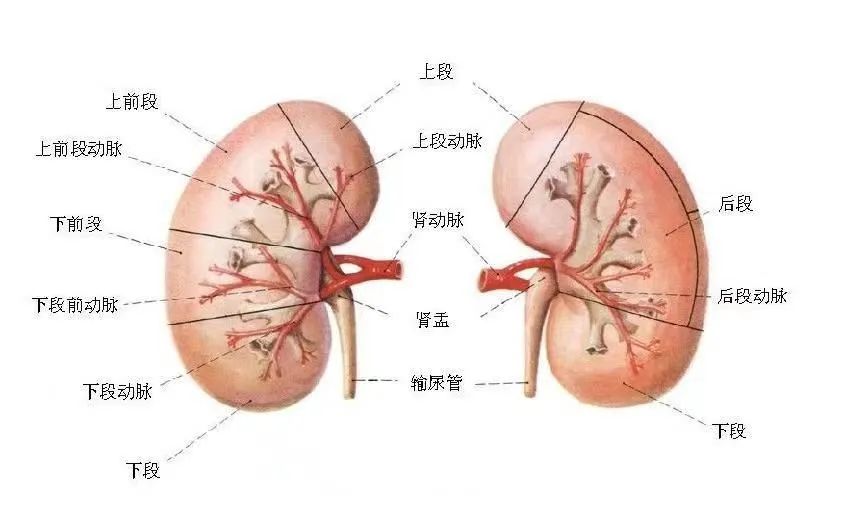
The Kidney, as one of the most important organs in the body, has the primary functions of producing urine, eliminating metabolic waste and certain toxins, while also having the absorption function to retain water and other useful substances such as glucose, proteins, sodium ions, potassium ions, amino acids, and bicarbonate, to regulate water and electrolyte balance and maintain acid-base balance.The Kidney is Yin and stores true essence, serving as the root of storage. The Kidney stores congenital essence, which is the source of human spirituality.As stated, “The Kidney is the official of strength, from which skills emerge” and “the Kidney is the foundation of congenital life”; the Kidney seems different from the other four organs, like an official in the court who does not seek a specific position but helps the emperor and other ministers. “The Kidney governs the storage of essence, governs water, and governs the intake of Qi” means: “governing the storage of essence” refers to the Kidney’s responsibility for our growth and the Qi transformation of other organs; “governing water” means the Kidney also participates in the metabolism and transportation of fluids along with the Lung and Spleen; “governing the intake of Qi” means the Kidney also collaborates with the Lung in the breathing process, where the Lung inhales Qi, and the Kidney retains the Qi needed by the body, while the Lung expels the remaining “waste Qi” to ensure the depth and smoothness of breathing. The Kidney is like a screw, rooted in every aspect of human activity, collaborating with the other four Zang organs to fulfill its mission.
Click the image to view
How to Nourish Kidney Qi?
 The primary physiological functions of the Kidney are: to store essence, govern growth and reproduction, govern water, regulate fluid metabolism, and govern the intake of Qi.The physiological characteristics of the Kidney are:The systemic connections of the Kidney are: it connects with the bones, its orifices are the ears and the two Yin, its manifestation is in the hair, and it corresponds to the winter climate.The Kidney is paired with the Bladder in terms of internal-external relationships.The Kidney stores vital energy, which is related to growth and development; if vital energy is insufficient, the body’s bones, teeth, and hair cannot grow and develop smoothly.The Kidney regulates fluid metabolism.
The primary physiological functions of the Kidney are: to store essence, govern growth and reproduction, govern water, regulate fluid metabolism, and govern the intake of Qi.The physiological characteristics of the Kidney are:The systemic connections of the Kidney are: it connects with the bones, its orifices are the ears and the two Yin, its manifestation is in the hair, and it corresponds to the winter climate.The Kidney is paired with the Bladder in terms of internal-external relationships.The Kidney stores vital energy, which is related to growth and development; if vital energy is insufficient, the body’s bones, teeth, and hair cannot grow and develop smoothly.The Kidney regulates fluid metabolism.
Under normal circumstances, fluids are distributed throughout the body through the reception of the Stomach, the transportation of the Spleen, the regulation of the Lung, the drainage of the San Jiao (which opens the water pathways), and the opening and closing of the Bladder; excess water can be smoothly expelled. Conversely, this can lead to urinary obstruction or frequent urination.
The Kidney governs reproduction.The Kidney is the source of life activities; when Kidney fire is strong, vitality is robust, essence is abundant, and Yin and Yang are balanced, life can flourish endlessly, and the body remains strong.Ancient people emphasized nourishing the Kidney, moderating sexual desires to preserve Yin essence, ensuring the Kidney essence is abundant, which prolongs life. The development of reproductive organs and reproductive capacity relies on the Kidney; in other words, Kidney essence governs reproductive function and plays a decisive role in reproductive capacity, making it the foundation of human reproduction. If a person’s Kidney essence is insufficient or damaged, it will inevitably lead to sexual dysfunction, decreased reproductive capacity, or even loss of it.
-
Physiological Characteristics of the Kidney
The Kidney governs the storage of essence, serving as the foundation of congenital life; in contrast to the Liver’s regulation, it prevents the excessive loss of essence, blood, Qi, and fluids. The vitality of a person depends on the abundance or deficiency of Kidney essence. The Kidney corresponds to the winter climate when all things hibernate. Therefore, winter is the season for nourishing the Kidney, reducing outdoor activities, and ensuring warmth are key.

